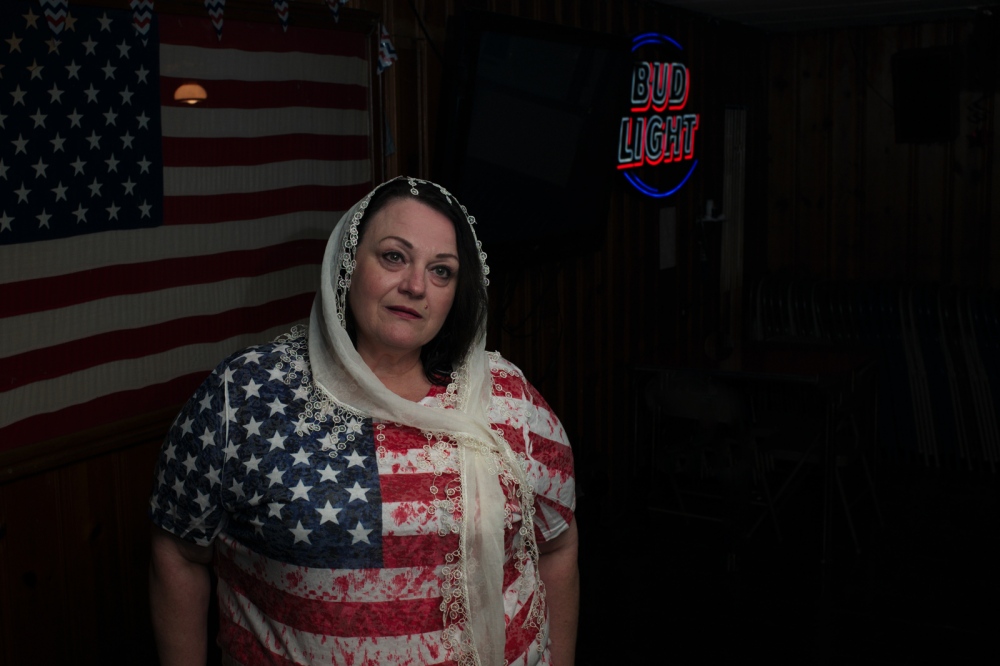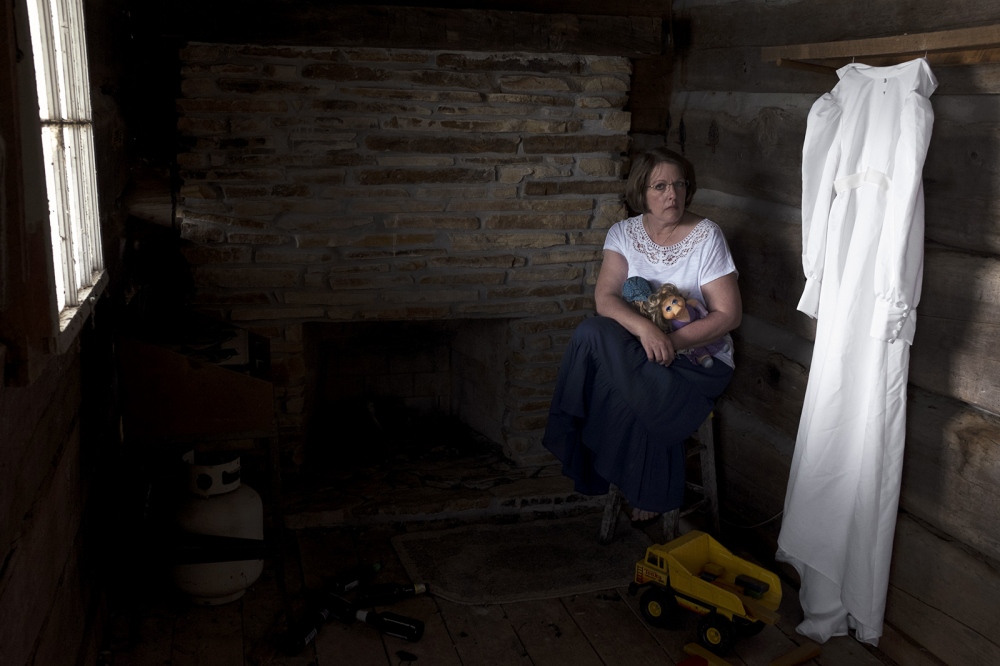3 of 12
© 2025 Michael Webster
“I was the good kid, the straight A student, I never did anything wrong, ” says Karen Fallowfield of her childhood and adolescence. “I wasn’t a bad looking kid, but I’d been bullied and didn’t think I was worth anything.”
Karen got pregnant at the beginning of her senior year in high school and had a church wedding three weeks later.
“He was basically the first guy I’d ever dated,” she says. “Then I found out he had a drug and alcohol problem. All of a sudden, I’m married to this guy who tells me everything I do is wrong. I figured it must be true.”
The verbal abuse was followed by social isolation.
“He cut me off from my family and friends,” she says. “I wasn’t allowed to visit them, not even during the holidays. I wasn’t allowed to go to the grocery store without the kids. Then it was ‘who did you see, did you say anything about me?’”
Then came violence and sexual abuse.
“There wasn’t so much physical violence,” she says, “though there was physical violence. He broke objects, he hit me a few times, but I was sexually abused on a daily basis.”
Karen tried to cope, but her lack of self-confidence kept her in check.
“I thought it would get better,” she says. I told myself it would get better. I thought it was my fault. I was always trying to figure out if there was something else I could do to make it better. I held out hope.Of course it never got better. I had no self confidence, which is why I stuck with him.“
And like many abusers, he was often apologetic, especially after doing something particularly heinous.
“He had lying down to a fine art,” she says. “He was very believable. And when he was sober, he could be a great guy. That’s what kept me hanging on. It was always, ‘Im lucky to have you, you’re beautiful,’ but then he’d knock me around and say I was cheating on him, when he was the one who was cheating on me. That’s the way it usually goes. If they are the ones cheating, then they accuse you. Not that I was always innocent. After it went on so long, I figured as long as I was being accused, I might as well have some fun. But it wasn’t.”
She wanted to leave him for a long time, but found it’s never as easy as it sounds.
“I tried to leave him one time after he raped and beat me,” she says. “I went to my parents house, but he showed up with a gun and threatened to kill the kids.
Just when she thought it couldn’t get worse, it did.
“He raped our daughter when she was 10 years old,” says Karen. “I knew that something had happened, but she never told me until she was 15 or 16. She didn’t want to press charges and have to face him in court, she just wanted him gone.”
Meanwhile, Karen had become an EMT and was developing a support system outside the home. She says it was a miracle he let her out of the house to take the necessary classes, but he could never hold a job, so he gave up some measure of control for money to pay the rent. She finally found the courage to leave him.
“He threatened this and threatened that,” she says, “but I was one of the lucky ones. I know that when you leave them is the most dangerous time. It did get kind of weird and scary, but he was so afraid of going to jail, he didn’t hurt me. “
Years later he tried to get back into her life and threatened her. She had to get a restraining order, and it’s been a long time since she’s heard from him.
So that long ordeal is probably as over as it can be. Her daughter struggles with anger issues and has physical problems such as stomach pain and migraines. She sometimes has trouble getting out of bed for long stretches.
“I’ve been away from him for 29 years,” she says, “and I still feel repercussions.”
As is not unusual, Karen Fallowfield and her daughter are victims of a cycle of sexual abuse.
“I was molested by a family member when I was little,” says Karen. “He was an upstanding guy that nobody would ever expect. I didn’t remember it until it happened to my daughter. Back then you were just told to stay away from that person, you weren’t supposed to call the police. Nobody would have done anything, even if I had called the police.”
Karen got to a place where she was able to reflect on her experiences and relate them to the world around her.
“I realized that at least one in four women I know were abused,” she says, “and they are my age, so that happened in the 50s and 60’s. I hate to think about how bad it must be today.”
But she did think about how bad it must be today.
“Over a year ago I had this feeling that I just had to do something,” she says. “God doesn’t give us our experiences and force us to sit on them and not help somebody. That was the message I was getting over and over again – I am not hiding this, I’m using it. So I got a bunch of women together at church, and you wouldn’t believe the number of stories they had about violence and sexual abuse. You have no clue.”
No she is helping others.
“I want to show teenage girls that they don’t have to stick with the guy that they know in their heart is not right,” she says. “You see all these red flags, don’t ignore them.”












